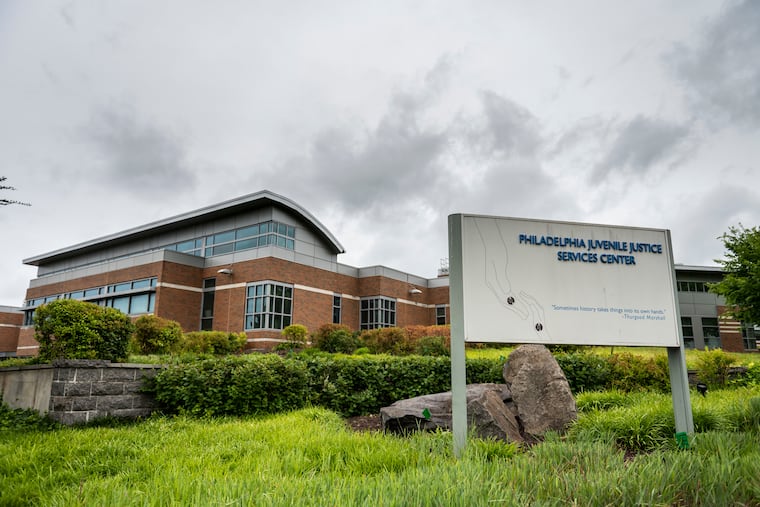Philly teens are regularly subjected to illegal lockdowns in detention, city watchdog finds
Minors held in juvenile detention in Philadelphia are routinely locked in their rooms for days on end, in violation of state laws, the Philadelphia Youth Ombudsperson found.

Minors held in detention awaiting juvenile court proceedings in Philadelphia are routinely locked in their rooms for days on end, in violation of state laws strictly limiting seclusion for minors, an investigation by Philadelphia’s Office of the Youth Ombudsperson found.
Teens at the Juvenile Justice Services Center in West Philadelphia reported being placed in isolation in locked rooms for as long as 10 days, though by law minors may not be isolated for more than eight hours over a 48-hour period without a court order.
“The reason the law is so stringent on seclusion is because it does have harmful impacts,” said Tracie Johnson, who was appointed Philadelphia’s first-ever youth ombudsperson in 2023. “The research is clear that they are psychological impacts on young people, especially young people who have behavioral health problems. It’s going to put them at greater risk.”
» READ MORE: Philadelphia police will stop arresting kids for some crimes under new diversion program
The ombudsperson’s report, completed in November but released this week, was based on interviews, direct observations during visits to the facility, and reviews of internal logs — though it warned that the facility’s paperwork “showed some glaring inconsistencies, which raised questions about the integrity of these records.“
The logs included an instance where a teen was locked in seclusion while also handcuffed. That is expressly banned under state law. “When informed of this issue,” the report noted, “leadership reflected that this was very concerning and counter to their written internal seclusion policy.”
The Philadelphia Department of Human Services, which runs the detention center, conducted its own review and agreed to revise its policy, retrain staff, and improve record-keeping.
One youth, Tyquan Frazier, 18, of North Philadelphia, said he spent nine consecutive days in seclusion in 2024, as punishment for a fight he had with another teen at the facility. He was not permitted to attend classes, he said, and was not provided any worksheets.
“I just looked at the wall and read my Koran, that’s it,” said Frazier, who added he was allowed out to shower during his period of isolation. He described seclusion as stressful.
DHS disputed the claim that seclusion was overused, based in part on school records that contradicted reports of seclusion lasting for three days or longer, according to the agency’s response. A city spokesperson did not immediately respond to a request for comment.
But the agency conceded that staff did not notify teens when their seclusion was over — which might “lead to misunderstandings among youth who might feel like they are in seclusion much longer than they are.”
Johnson said the DHS review was hampered by an interview script that did not include questions about seclusion, and by its reliance on inaccurate records. She noted that the policy in place at the facility — updated in response to her review — was from 1996, predating the 1999 legislation that set limits on seclusion and required near-constant monitoring of secluded youth that she said was not being conducted in Philadelphia’s juvenile center.
“That would mean that, for over 20 years, the policy … was out of date, “ she said. “If that’s what the staff is using to adhere to protocol, that’s not going to be in compliance.”
She said staff needed training on how seclusion is measured and documented, and the circumstances under which it is permissible. In many cases, staff marked seclusion as having ended because the teen, locked in his room, fell asleep — in one case locking down an entire pod of 20 teens, and then noting the seclusion had ended when all 20 fell asleep, precisely at 4:50 p.m.
A spokesperson for the state Department of Human Services said the office, which licenses the Philadelphia Juvenile Justice Services Center, is reviewing the watchdog’s report and is “committed to the safety and best interests of youth who interact with the juvenile justice system.”